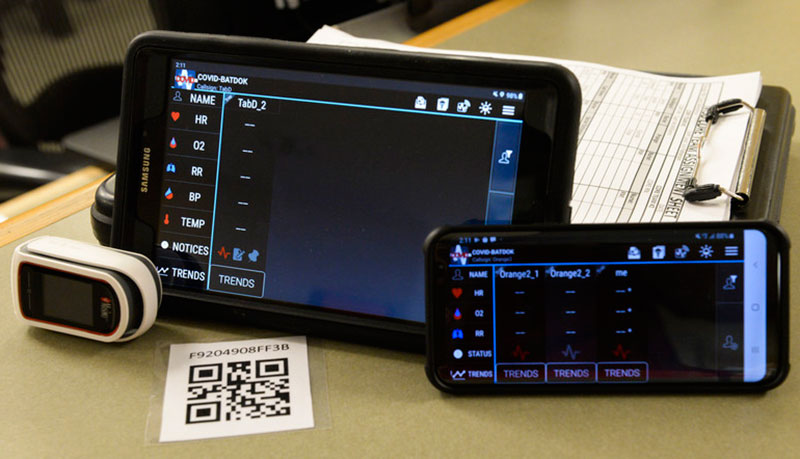Wearable technologies can be innovative solutions for healthcare problems. According to a literature review of wearable technology applications by Healthcare Information and Management Systems Society, Inc. (HIMSS), wearable applications can directly impact clinical decision making. Wearable technologies enable the continuous monitoring of human physical activities and behaviors, as well as physiological and biochemical parameters during daily life. The most commonly measured data include vital signs such as heart rate, blood pressure, and body temperature, as well as blood oxygen saturation, posture, and physical activities through the use of electrocardiogram (ECG), ballistocardiogram (BCG) and other devices.
Read more Thinklabs One Electronic Stethoscope Keeping Healthcare Professionals Safe During COVID-19 Pandemic
Wearable technology is playing a crucial role during the current pandemic. For example, according to Harvard University, Edmond J. Safra Center for Ethics, in March 2020, the South Korean government implemented a smartphone app to supervise the self-quarantine of those who met criteria for confirmed contact with individuals who were confirmed to have the viral infection, according to news provided by FinancialBuzz.com.
Nemaura Medical, Inc. announced earlier last week breaking news that it has, “issued a presentation outlining potential new applications for monitoring disease progression in Covid-19 patients using Continuous Lactate Monitoring (CLM). The company’s both CGM and CLM products are based on Nemaura’s BEAT platform, which is designed to non-invasively extract a number of analytes through the skin. By adapting the sensor chemistry, algorithm and mobile app interface initially developed for sugarBEAT, the BEAT platform has the potential to be utilized for several markets beyond glucose monitoring and diabetes. Nemaura is evaluating the timelines for bringing the CLM to market as a Class 2 approved Medical Device.
OPKO Health, Inc. announced earlier this month that it will conduct COVID-19 testing for all Major League Soccer (MLS) players as well as match officials, and Club and League staff participating in the MLS is Back Tournament. MLS has chosen BioReference as its laboratory to assist in informing its return-to-play policies for the Tournament kicking off in Orlando in early July.
Moderna, Inc. announced last week the publication of an interim analysis of the open-label Phase 1 study of mRNA-1273, its vaccine candidate against COVID-19, in The New England Journal of Medicine. This interim analysis evaluated a two-dose vaccination schedule of mRNA-1273 given 28 days apart across three dose levels (25, 100, 250 µg) in 45 healthy adult participants ages 18-55 years, and reports results through Day 57.

Koninklijke Philips N.V. reported earlier this month that it had introduced first-of-its-kind mobile Intensive Care Units (ICUs) in India. Designed to meet the critical-care requirements of patients, each prefabricated ICU has a capacity of nine beds. The units will be locally manufactured by Philips in India, with each ICU unit capable of being deployed in one day. India is in the top 5 countries with the highest amount of COVID-19 cases. The country’s healthcare system is under immense pressure as infections spike. Leveraging its clinical, technical and design expertise, Philips has developed new mobile ICUs to address the challenging needs of critical-care services in India.
Read more BHP Trials Wearable Technology On Its Iron Ore Mines During COVID-19
iBio, Inc. announced back in June that IBM Watson Health had selected iBio to receive 18 months of use of the IBM Clinical Development (ICD) solution, free-of-charge. IBM Watson Health recently began offering its ICD solution to eligible trial sponsor organizations as part of its efforts to help support the medical community to address the COVID-19 pandemic. IBM Watson Health has received interest in the offering from numerous hospitals, sponsors, contract research organizations and academic institutions, and is currently enabling 15 COVID-19 disease trials.












